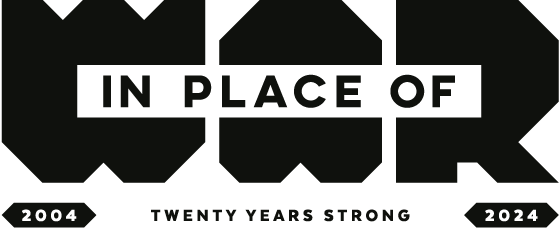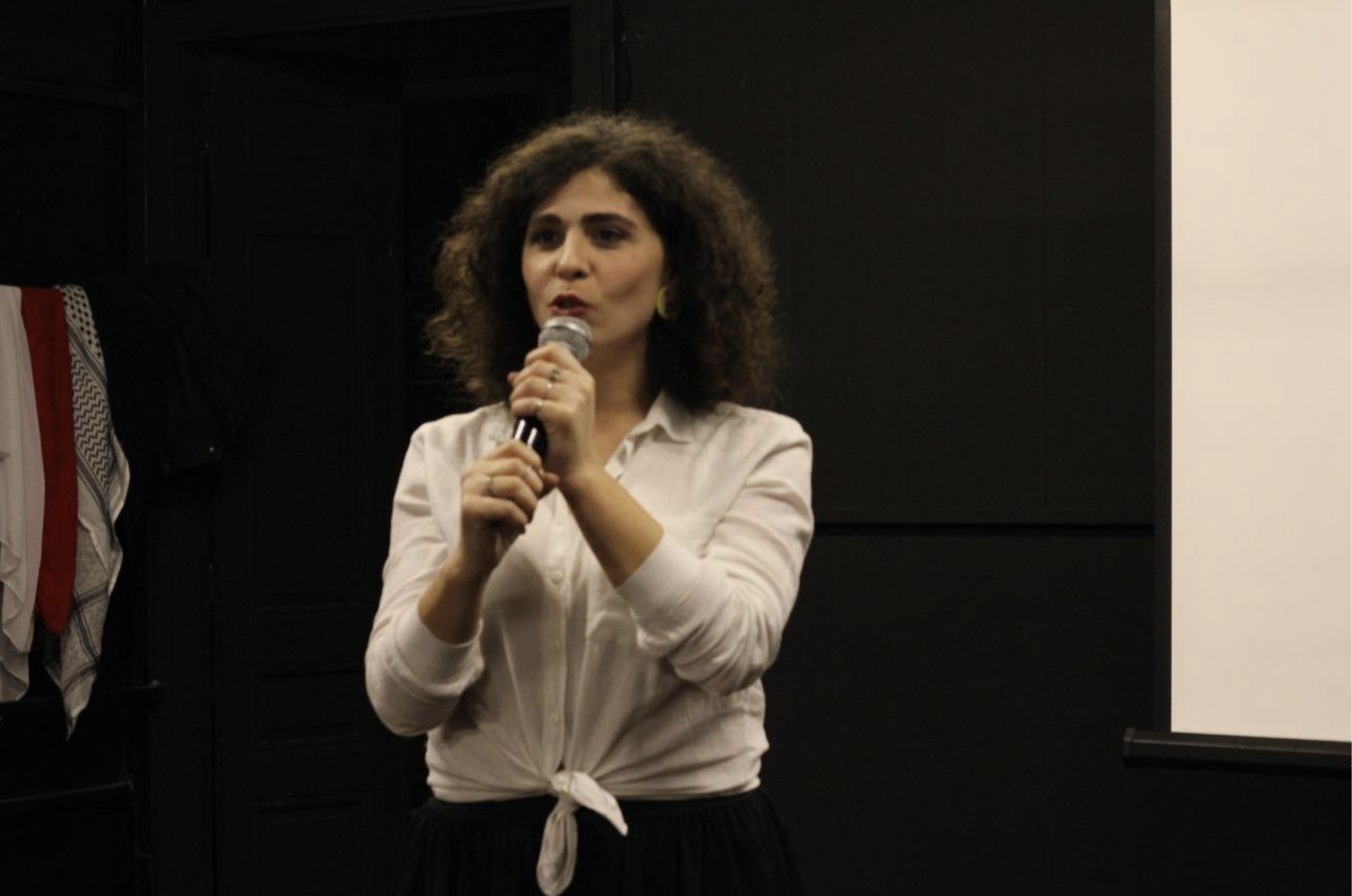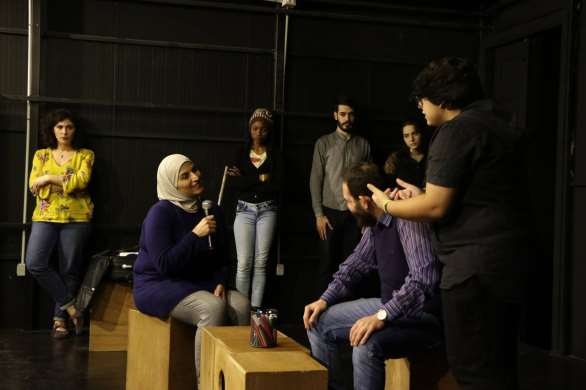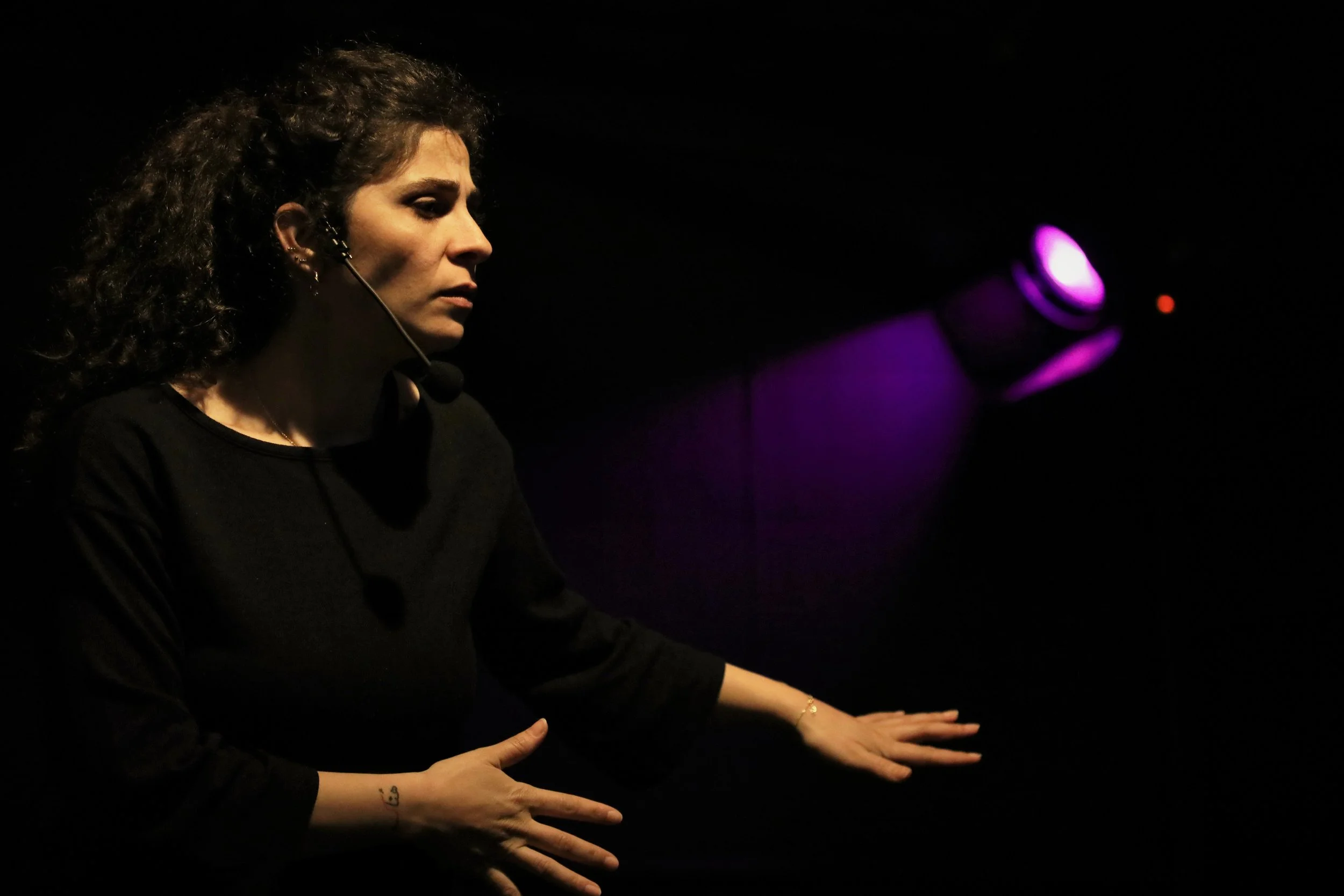FARAH WARDANI
Farah Wardani, the inspiring actress using theatre for social change in Lebanon
Name: Farah Wardani
Organisation: Laban
Location: Beirut, Lebanon
Links: www.facebook.com/labantheater
www.instagram.com/labantheater
Overview: Farah Wardani is an award-winning professional actress, who has pioneered the use of theatre for social change and activism in Lebanon. Since 2006 she has worked with over 50,000 men, women and children throughout the country to provide safe spaces for people to express their emotions and reduce their tension, providing a welcome distraction from daily hardships. Through her work she aims to create a sense of community and cooperation, and work towards building a better society. Her theatre work has covered a wide range of themes including: gender-based violence, active citizenship, peace building, memory of the civil war, social cohesion between refugees and host communities, fighting extremism, youth-related topics, children’s rights, women’s rights and many others.
Conflict: Lebanon is a country in crisis. The after effects of the civil war, which ended in 1990, are still keenly felt. Lebanon is experiencing a prolonged and severe economic crisis. Basic commodities (fuel, medicine, food) have become increasingly scarce. Electricity is also very limited. The availability and quality of medical treatment is affected by the economic crisis & fuel shortages, and then you add the effects of Covid-19 and the August 2020 Port of Beirut explosion. Farah describes a racist, individualistic, fragmented society which hosts large numbers of refugees from the surrounding states such as Syria, Armenia and Palestine. Since the 17 October Revolution in 2019 failed to fully achieve its goals, Farah describes a general sense of hopelessness in the city as more and more residents attempt to emigrate. She describes Beirut as a city with every possible social and political problem, highlighting the normalisation of gender-based violence and gender inequality, a lack of public spaces and sense of community.
Action & Results: Laban have supported a wide range of causes, with the focus always adapting to the political and socio-economic context in Lebanon. They work with partner organisations to reach specific groups such as refugees, survivors of the Civil War, ex-drug users and women affected by gender-based violence. They use innovative methods to bring together participants, building relationships and creating connections and a safe space for self expression. One of these methods is Playback Theatre, an interactive form of improvisational theatre in which audience members tell stories from their lives and then watch them enacted on the spot. Laban is based in a small studio in Beirut, where they regularly receive groups for performances. However, most of the work with organisations takes place outside their studio in venues across the country, including schools, refugee camps and community buildings. They use theatre to support campaigns on many issues, such as providing safe spaces for the LGBTQ+ community, the criminalisation of domestic violence, and the ongoing fight to end the Kafala system, a migrant sponsorship system that gives private citizens and companies in Jordan, Lebanon and most Arab Gulf countries almost total control over the employment and immigration status of migrant workers and is known for widespread exploitation and abuse, especially related to race and gender. Farah also visits children in hospital as a ‘Clown Doctor’ as part of the team at the Ibtissama Foundation.
Journey: Farah studied theatre and then psychology at the Lebanese University, and has a Masters in Drama Therapy. While training as an actress in the summer of 2006, she visited refugee camps for people displaced by the Israeli war on Lebanon, where she used theatre to connect with children and young people. She was inspired by the impact of her work, leading her to study psychology and later drama therapy. Farah expresses the difficulties for women in leadership positions, highlighting that there are only a few women members of parliament in Lebanon, which she dismisses as ‘only for the photo’. She says she has experienced harassment in work contexts and elsewhere, with people often not trusting in her skills or doubting her experience, being looked down on, and having to prove herself time and time again. She feels lucky to be part of a good team with a collaborative leadership style. She has continued to work through both her pregnancies but felt she was treated as something fragile and needed support. She says ‘I am a strong, confident, well-rooted woman, I don’t need this kind of support’. She feels worried about the future of Lebanon, she report a general sense of hopelessness in the population, and that many people with the power to change things are leaving the country. She only hopes that those who leave will take with them their stories and show them to the world.
Support: Farah would like to see more public spaces in Lebanon, to give people the time and space to help connect with others. She sees building a sense of community as a high priority to break the isolation of individualism, where everyone is individually busy providing the basics for their families, meaning there is a lack of awareness of the need to work together and create bonds and links to improve society. She wants Lebanese voices to be heard abroad to build international pressure for change and accountability of the Lebanese government. In terms of support on the ground, Laban wants to expand to reach more people, and as part of their ongoing learning and growing process the team would benefit from capacity-building resources To be able to document its work in a way that allows Laban to share its knowledge and experience efficiently with the world, to have a sustainability plan away from project-based funding, and an alternative fixed space to keep the open safe spaces running.




